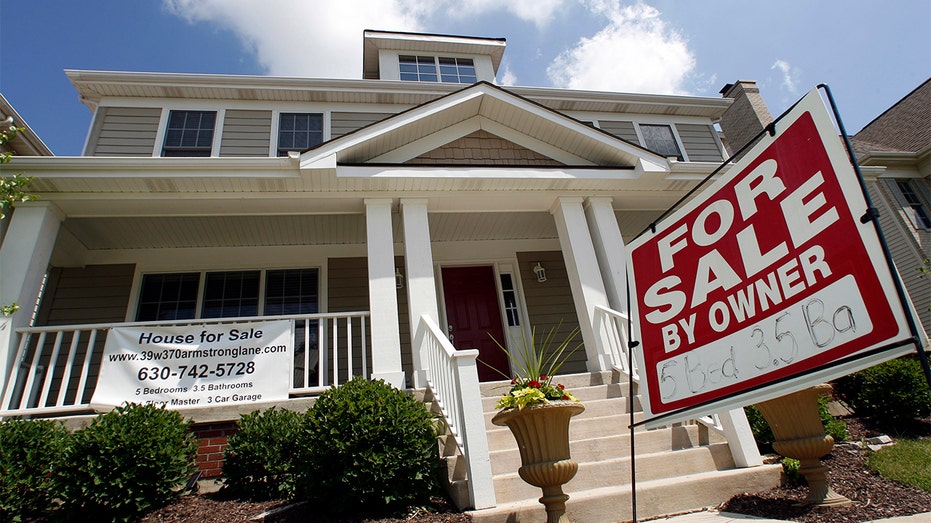Home prices jump 18.4% in October
The figure marks a slowdown from 19.1% year-over-year in September
NYC real estate agent closing deals through TikTok
Real estate influencer Madison Sutton, a.k.a. @thenycagent, discusses the success she's found by showing homes through TikTok.
U.S. home prices have reported their fifth-largest annual gain on record after S&P CoreLogic Case-Shiller's 20-city composite index surged 18.4% year-over-year in October. However, the figure marks a slowdown from the 19.1% year-over-year growth in September and came in below Refinitiv's 18.5% growth estimate.
In addition, Case Shiller's national home price index, which covers all nine U.S. census divisions, reported a 19.1% annual gain in October, down from 19.7% in the previous month, while the 10-city composite increased 17.1% year-over-year, down from 17.9% in the previous month.
HOOVER, ALABAMA, REAL ESTATE: WHAT YOU CAN GET FOR $1M
Before seasonal adjustment, the U.S. national index posted a 0.8% month-over-month increase in October, while the 10-City and 20-City Composites both posted increases of 0.8%. After seasonal adjustment, the U.S. national index posted a month-over-month increase of 1%, and the 10-City and 20-City Composites posted increases of 0.8% and 0.9%, respectively.

Phoenix, Tampa, and Miami led the 20-city index with the highest year-over-year gains in October, coming in at 32.3%, 28.1% and 25.7% respectively. Minneapolis and Chicago posted the smallest increases of 11.5% each.
Six of the 20 cities reported higher price increases in the year ending October 2021 versus the year ending September 2021. All 20 cities reported double-digit annual gains, but 14 of the 20 saw their prices decelerate in October compared to last month.
CLICK HERE TO READ MORE ON FOX BUSINESS
The housing market has been strong thanks to rock-bottom mortgage rates, a limited supply of homes on the market, and pent-up demand from consumers locked in last year by the pandemic. Many Americans, tired of being cooped up at home during the pandemic, are looking to trade up from apartments to homes or to bigger houses.
"We have previously suggested that the strength in the U.S. housing market is being driven in part by a change in locational preferences as households react to the COVID pandemic," S&P DJI managing director Craig Lazzara said in a statement. "More data will be required to understand whether this demand surge represents an acceleration of purchases that would have occurred over the next several years, or reflects a more permanent secular change."
Last week, mortgage rates fell to 3.05% for the benchmark 30-year, fixed-rate and 2.66% for the 15-year fixed-rate home loan. The persistently low rates signal that credit markets appear more concerned about the omicron variant depressing economic growth than about the highest inflation rates in nearly 40 years.
The National Association of Realtors reported last week that sales of previously occupied homes rose for the third straight month in November to a seasonally adjusted annual rate of 6.46 million.
The Associated Press contributed to this report





















